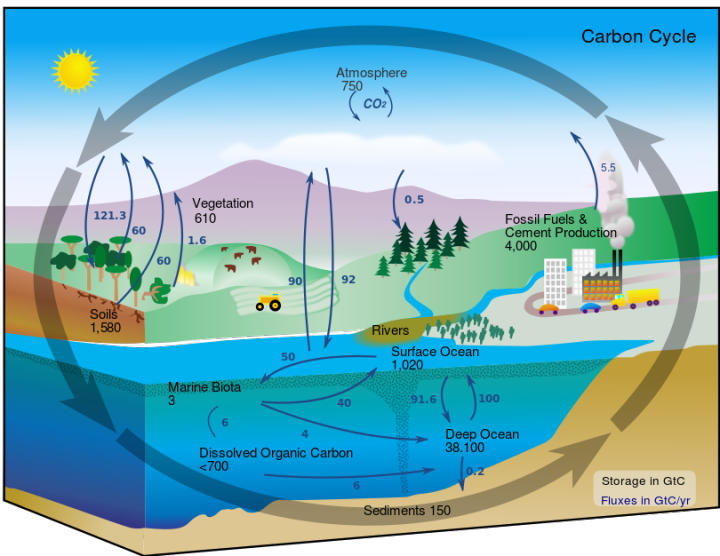What are the biggest worries of the present times?
For many it is Climate Change, for many others it is inequality and economic violence. For everybody it is physical violence. The unspeakable violence unleashed in the Middle East boomeranging back to its cradle in the West, the horrifying violence of racism+guns in the US, the day to day violence of gangs (youth, drugs, etc) stabbing each other’s members in a vain attempt to feel some power.
We are not used to Popes starting anything very radical, but Pancho (Francis’ Spanish nickname) has created an image of being a daring reformer (although sticking to the more fundamental issues of the Catholic Church like abortion and contraception) that not even the most distrustful, those who are aware of his historic conservative tendencies, can help but admire, and hope for more.
And more is coming. His push to make Climate Change a central issue is most interesting because it comes paired with the need to address economic violence, the inequality, the poverty. Now he has invited Naomi Klein to join the team: a secular “Canadian author, social activist, and filmmaker known for her political analyses and criticism of corporate globalization and of corporate capitalism. She is best known for No Logo, a book that went on to become an international bestseller; The Take, a documentary film about Argentina’s occupied factories that was written by Klein and directed by her husband Avi Lewis; and The Shock Doctrine, a bestselling critical analysis of the history of neoliberal economics Her latest book is This Changes Everything: Capitalism vs. the Climate” (Wikipedia). She’s also a darling of the Occupy movement.
With these credentials Francis seems to be sending a strong message, one that could ricochet into other two areas of the looming disaster
It’s the Oil, stupid
The 1953 Iranian coup d’état to overthrow the democratically elected Prime Minister of Iran Mohammad Mosaddegh on 19 August 1953, (parliament was attempting to nationalise the Oil industry) masterminded by the United States and backed by the United Kingdom in order to protect their oil interests, opened a long chapter of military interventions by the West in the region. Iraq was perhaps the most reviled. Anybody who claims not to understand how so many people can join jihadist organisations is either burying their heads in the sand or lying. There are always fanatics with extreme views, but they are few. For them to become leaders of large violent movements something has to be wrong in the lives of ordinary people. Let’s say awareness of disastrous foreign policy + islamophobia + personal experiences of discrimination (e.g., for those living in Europe). Not to mention that we live in a violent system where everything is “resolved” through violence. Even our saintly Pope once said that if someone insulted his mother he could punch them. Mh…
Understanding violence does not mean justifying it, or even seeing it as the only, or the most appropriate response. In fact if the young joining ISIL cannot see they are being manipulated not only by the fanatics but also by the West it has to be explained to them that after the fall of Communism the West (NATO) was looking for a replacement external enemy and found Islam. The more vicious and savage the Islamic reaction, the better for the militaristic mentality of the NATO allies. The whole point is to have an enemy you cannot even imagine yourself talking to. Reconciliation must be beyond any hope or possibility. “That’s the enemy we like, someone you cannot see as a human being” would be saying the Neocons (and the racists of Charleston alike).
So, if there was a real, radical and massive movement away from Oil and towards renewables we could leave the Middle East alone. This of course links up the Oil with the Arms Trade, as leaving the Middle East alone would mean less weapons sold to the region. Unfortunately this will need an additional strategy. The Peace and Nonviolence movement has to work together with this new environmental-economic initiative if we are to make any significant advances.
The serious fossil-fuel-burning induced health problems very few discuss
“Outdoor air pollution is a major environmental health problem affecting everyone in developed and developing countries alike. The WHO estimates that some 80% of outdoor air pollution-related premature deaths were due to ischaemic heart disease and strokes, while 14% of deaths were due to chronic obstructive pulmonary disease or acute lower respiratory infections; and 6% of deaths were due to lung cancer…
“…A 2013 assessment by WHO’s International Agency for Research on Cancer (IARC) concluded that outdoor air pollution is carcinogenic to humans, with the particulate matter component of air pollution most closely associated with increased cancer incidence, especially cancer of the lung. An association also has been observed between outdoor air pollution and increase in cancer of the urinary tract/bladder.
“Ambient (outdoor air pollution) in both cities and rural areas was estimated to cause 3.7 million premature deaths worldwide per year in 2012; this mortality is due to exposure to small particulate matter of 10 microns or less in diameter (PM10), which cause cardiovascular and respiratory disease, and cancers”. (WHO)
There has been an industrial “outsourcing” towards Asian countries, with its inevitable consequence of “exporting” to them also the air pollution that goes with it. No amount of complaining about the carbon footprint of the Chinese can hide such process. But the air in the West is not improving so much because of the car industry’s slowness to convert the technology to less polluting engines.
If the eco-eco (ecological and economic) initiative succeeds in accelerating research and development of renewables the health of the world population could improve a great deal. If cancers, cardiovascular and respiratory illnesses can be reduced in this way, why are we still “thinking about it”?






